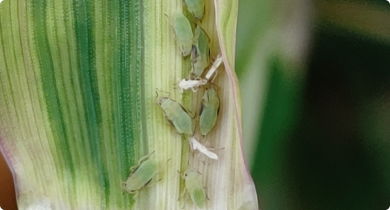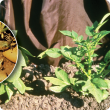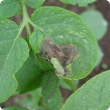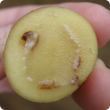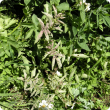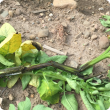Crops
The Department of Primary Industries and Regional Development continues to support the growth and international competitiveness of all crop industries in Western Australia.
With a 2400 kilometre span from its tropical north to its temperate south, WA supports a broad range of cropping industries from rain-fed winter cereals through to irrigated horticultural crops.
In the 2012/13 year the WA cropping industries exported a total of $3.9 billion which comprised: $3.1 billion of cereals, $859 million of pulses, pastures and oilseeds, $142 million of horticultural crops. The major contributors to these exports were wheat ($2.7 billion), canola ($756 million), barley ($377 million), lupins ($42 million), carrots at $48 million, oats ($12 million), and strawberries at $5.5 million.
Filter by search
Filter by topic
- Pests, weeds & diseases (13) Apply Pests, weeds & diseases filter
- (-) Remove Potatoes filter Potatoes
- Horticulture (13) Apply Horticulture filter
- (-) Remove Diseases filter Diseases
- (-) Remove Vegetables filter Vegetables
- Biosecurity & quarantine (10) Apply Biosecurity & quarantine filter
- Plant biosecurity (10) Apply Plant biosecurity filter
- Biosecurity (10) Apply Biosecurity filter
- Tomatoes (6) Apply Tomatoes filter
- Bacteria (4) Apply Bacteria filter
- Viruses & virus-like (3) Apply Viruses & virus-like filter
- Pests (3) Apply Pests filter
- Fungi (2) Apply Fungi filter
- Crop diseases (2) Apply Crop diseases filter
- Nursery & cutflowers (1) Apply Nursery & cutflowers filter
- Capsicums and chillies (1) Apply Capsicums and chillies filter



